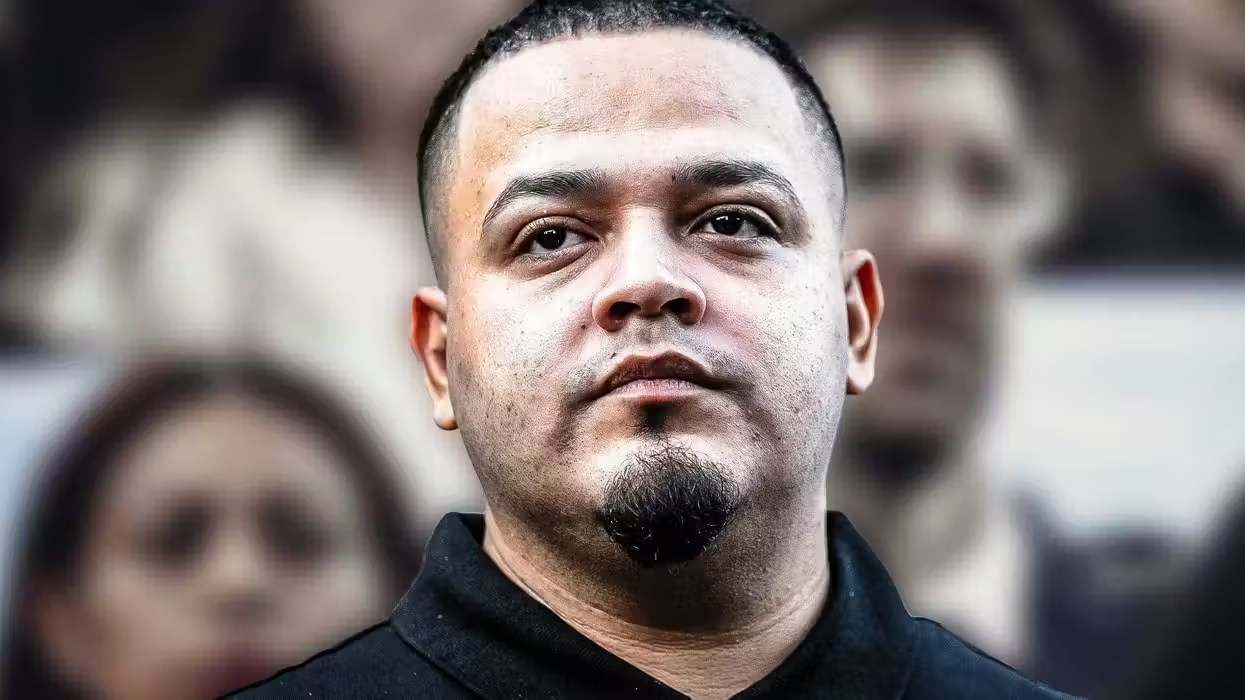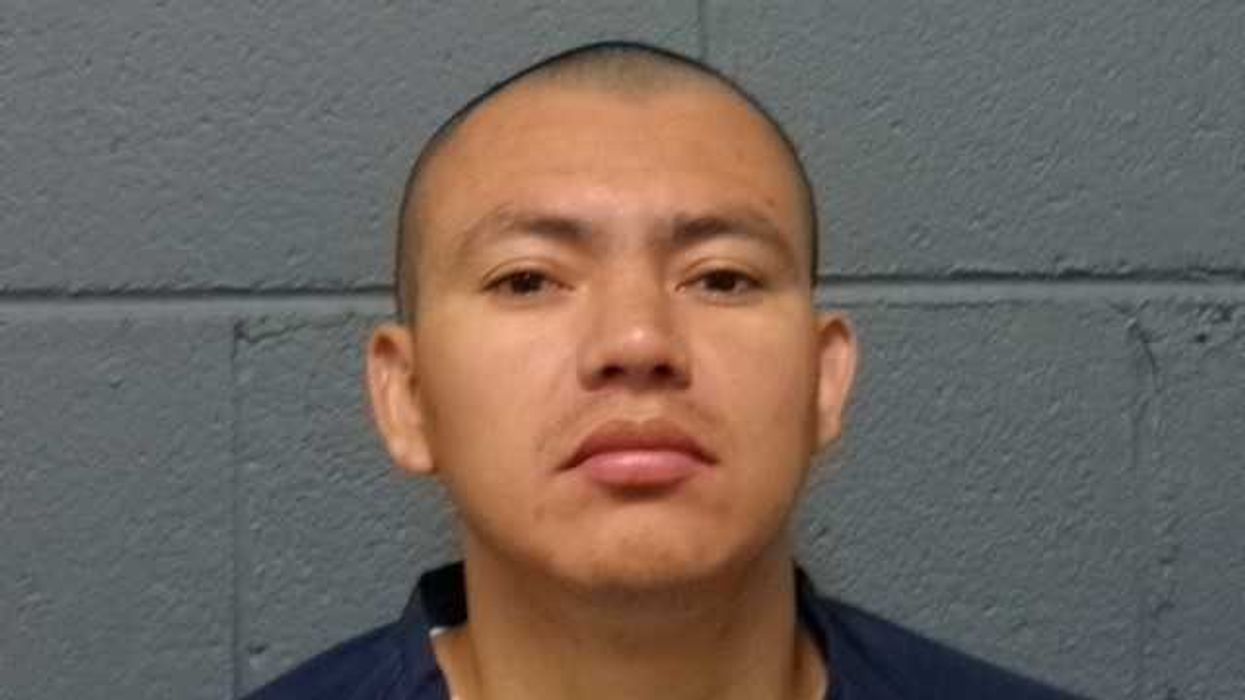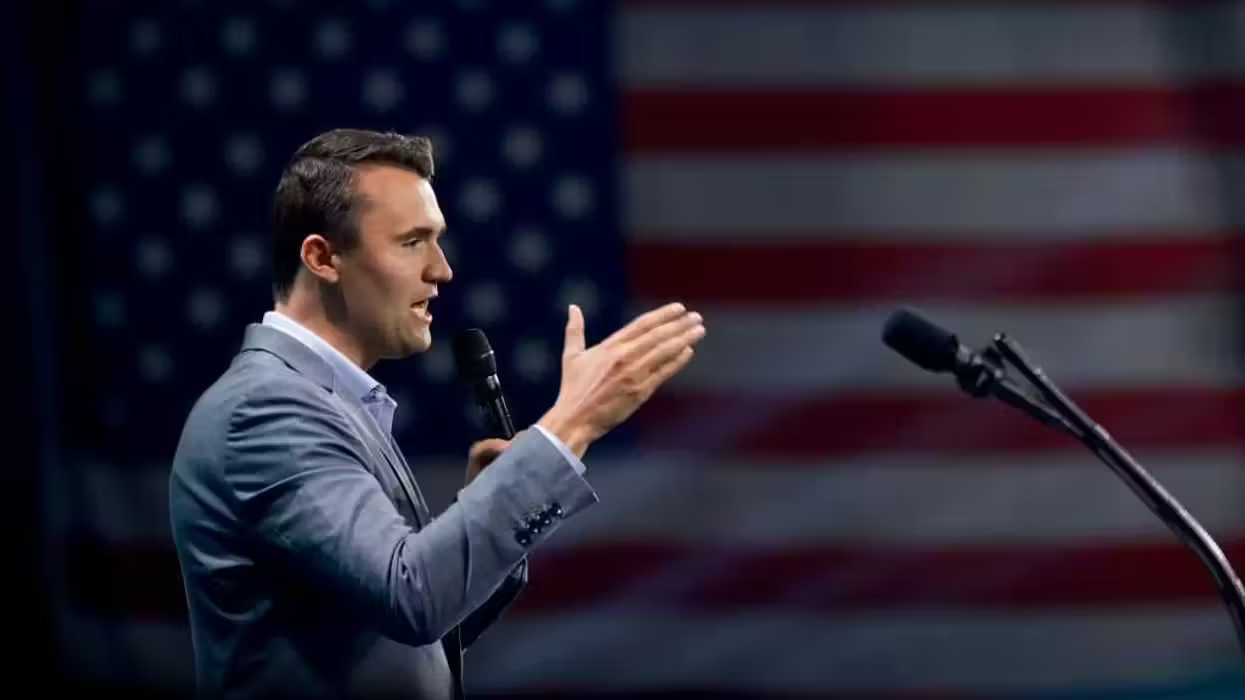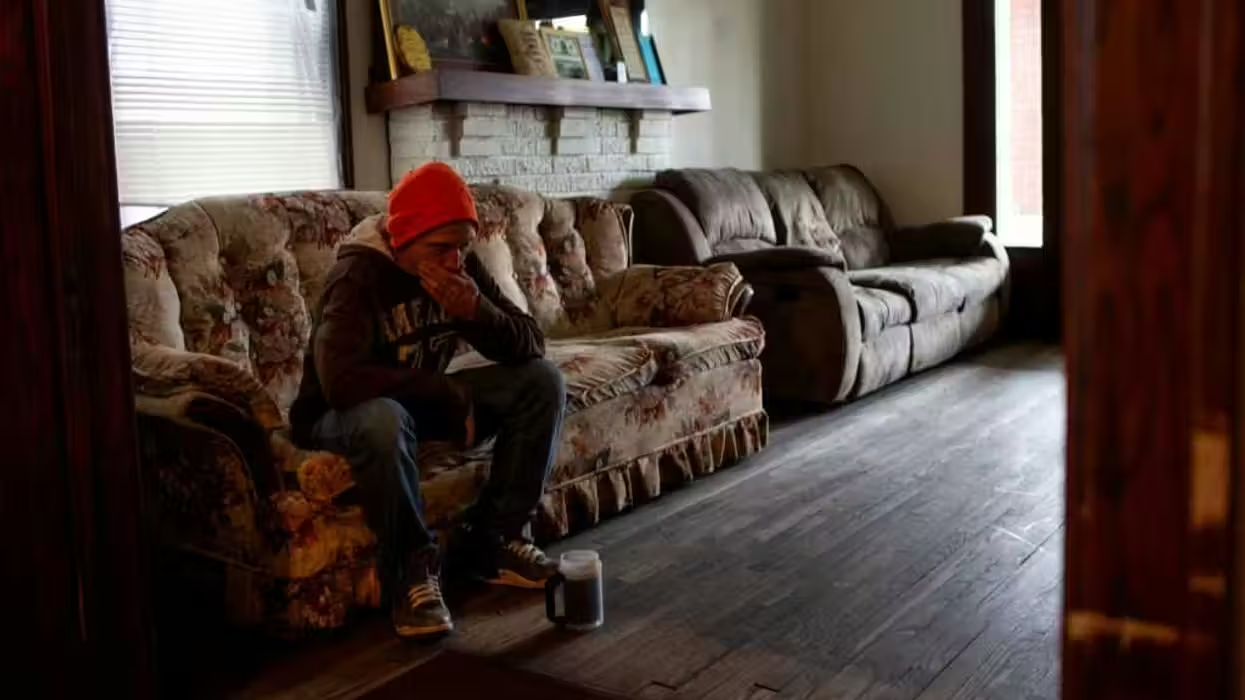© 2025 Blaze Media LLC. All rights reserved.
LONDON (AP) -- Archbishop of Canterbury Rowan Williams is stepping down at the end of the year, calling an end to a tumultuous decade as leader of a global Anglican Communion that has been sharply divided over sexuality and gender.
Williams, 61, renowned for his formidable learning, announced Friday he will take up a new post as master of Magdalene College, Cambridge.
"I would hope that my successor has the constitution of an ox and the skin of a rhinoceros," he said.
He was appointed in 2002 as archbishop of Canterbury, the senior official in the Church of England and the spiritual leader of the Anglican Communion, which says it represents 85 million people worldwide.

A self-described "hairy leftie," Williams is instantly recognizable due to his thick beard and vigorous eyebrows. His statements, often dense and complex, invariably were gently spoken.
He is the author of more than two dozen books, ranging across theology, poetry, history, economics and the writing of Fyodor Dostoevsky. He eagerly shared debating platforms with his opponents, including atheist biologist Richard Dawkins.
Much of Williams' time as archbishop was devoted to trying to hold the diverse churches within the Anglican Communion together despite an often bitter dispute over homosexuality, which put conservative and growing African churches at odds with liberal churches in the United States and Canada.
Within England, Williams disappointed liberal supporters by not backing the appointment of a gay priest, Jeffrey John, to a bishopric. Yet conservatives in the church remained suspicious of Williams because, as archbishop of Wales, he had knowingly ordained gay men as priests.
"The worst aspects of the job, I think, have been the sense that there are some conflicts that won't go away, however long you struggle with them, and that not everybody in the Anglican Communion or even in the Church of England is eager to avoid schism or separation," Williams said in an interview with the British news agency, Press Association.
"Crisis management is never a favorite activity, I have to admit, but it is not as if that has overshadowed everything," Williams added. "It has certainly been a major nuisance."
Williams promoted an Anglican Covenant intended to make national churches adhere to a process of discussion before making changes, such as the U.S. Episcopal Church elevating gay men and women to bishoprics. Some saw the Covenant as an attempt to enforce conformity.
So far, the Covenant has been approved by national churches in Ireland, Mexico, Myanmar, Papua New Guinea, South East Asia, Southern Africa and the West Indies, the Anglican Communion office said.
In England, 17 diocesan synods have so far voted against the Covenant, 10 have voted in favor; 17 are yet to vote.
As the Church of England moves slowly toward allowing women to become bishops, Williams had sought with limited success to devise a formula to placate both advocates of female bishops and those in the church who refuse to have anything to do with them.
The Anglicans' looming final vote on female bishops, Williams said, is one of the "watersheds" this year that encouraged him to think of moving on.
Rod Thomas, chairman of Reform, a group of conservative evangelicals in the Church of England, expressed appreciation for William's courtesy to all sides, but said his departure poses an opportunity to find someone to heal the divisions.
"What is needed is someone who will hold firm to Biblical truth in areas such as human sexuality in order to promote the gospel and unite the church in the face of militant secularism," Thomas said.
David Steinmetz, a specialist in Christian history at Duke University Divinity School in the United States, said Williams, lacking the absolute authority of a pope, was "always trying to reconcile and never to confront" while trying to hold together the Anglican fellowship.
"The positions he faced had no natural compromise area, with the result that things didn't really much improve," Steinmetz said. "I don't think confrontation would have gotten him any more."
Williams also caused a political storm in 2008 by suggesting that Islamic Sharia law could have a role in Britain in settling some disputes. The ensuing frenzy ignored the fact that Islamic principles were already used to settle some disputes.
The archbishop gained the support of Lord Phillips, then the senior judge in England, who said "there was no reason why Sharia principles, or any other religious code, should not be the basis for mediation or other forms of alternative dispute resolution."
Williams maintained warm relations with Roman Catholics even as Pope Benedict XVI created an ordinariate to receive traditionalist Anglicans who remain opposed to female priests and could not accept female bishops and other changes within the church.
Last weekend, Williams joined Benedict at a ceremony in Rome where they urged followers to work and pray for unity.
"In the last three years, I have grown to appreciate more and more the fine qualities of Archbishop Rowan: his kindness, his sharp intellect, his dedication to striving for harmony between peoples, especially within the Christian family, his courage and his friendship," said Archbishop Vincent Nichols, the leader of the Catholic Church in England.
John Sentamu, the Church of England archbishop of York, said Williams had endured much unfair criticism.
"Despite his courageous, tireless and holy endeavor, he has been much maligned by people who should have known better. For my part he has been God's apostle for our time," said John Sentamu, who figures prominently in speculation about Williams' successor.
"His stepping down to pursue something he dearly loves - teaching and writing - is received with gratitude, as this will continue to be a blessing to the Church," Sentamu said.
Williams has a deep connection with Cambridge University, where he studied theology at Christ's College and then served as a tutor at Westcott House, a Church of England theological college in the city. He lectured in the School of Divinity from 1980 to 1986, and was dean and chaplain of Clare College from 1984 to 1986.
Cambridge is also where he met his wife, Jane, a fellow theologian and author. They married in 1981, and have a daughter and a son.
He was appointed bishop of Monmouth in Wales in 1992, and took on the additional title of archbishop of Wales in 2000.
Want to leave a tip?
We answer to you. Help keep our content free of advertisers and big tech censorship by leaving a tip today.
Want to join the conversation?
Already a subscriber?
Billy Hallowell is a digital TV host and interviewer for Faithwire and CBN News and the co-host of CBN’s "Quick Start Podcast."
Billy Hallowell
Billy Hallowell is a digital TV host and interviewer for Faithwire and CBN News and the co-host of CBN’s "Quick Start Podcast."
more stories
Sign up for the Blaze newsletter
By signing up, you agree to our Privacy Policy and Terms of Use, and agree to receive content that may sometimes include advertisements. You may opt out at any time.
Related Content
© 2025 Blaze Media LLC. All rights reserved.
Get the stories that matter most delivered directly to your inbox.
By signing up, you agree to our Privacy Policy and Terms of Use, and agree to receive content that may sometimes include advertisements. You may opt out at any time.






